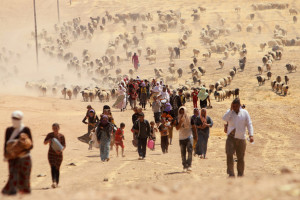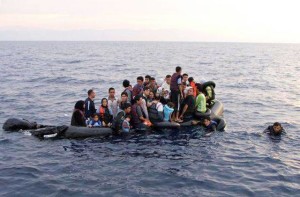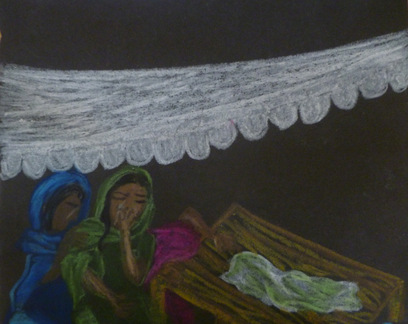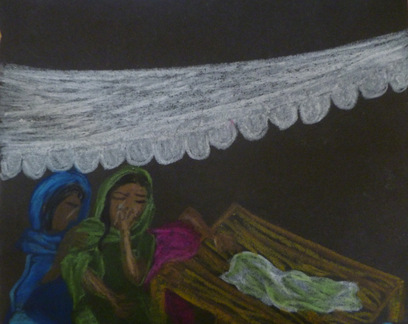There’s so much more I want to write about the things that go on in the lives of my neighbors and in my own life, but sharing it in short bursts online seems an inappropriate avenue. It would take a book to convey the complexities of all our lives, tangled up as we are in each other’s stories, and to explore all the things I am learning and unlearning in this wild, beautiful, and terrifying place. I intend to write that book someday, after more of the dust has settled and I am able to understand my experiences more clearly than I can today. But for now I’ll have to settle for sharing the soul of what’s on my mind, without sharing the details of the stories that have brought it about.It’s sad and confusing to see a life end with no apparent redemption in the arc of its story.
The bulk of my time and energy since has gone into being with those who are still alive and must carry on, but the suddenness of death in our neighborhood—again—turns my thoughts toward the reality that whether we die unexpectedly or old and boney, there is no surprise in the eventual end of life for each one of us. We are finite creatures, and death is unavoidable. I so often approach life as a project: I plan out the arc of my life, what I will accomplish, where I will go, who I will become. I try to assume control by planning, scheduling, keeping busy. But then I am reminded how quickly grief and loss could change my life completely, stealing away the people I love most, taking away the relationships and routines that make up the day-to-day fabric of my existence. I am sobered by the reality that all of this is beyond my control, and in the end life is not so much what I create for myself as it is what comes to me, and how I choose to respond.
All this meditation on death isn’t intended to be morbid. It’s actually a reflection on life: in light of the impending obliteration of all my worldly ambitions and activity, what is really worth my attention and energy in the meantime? What will remain after that final deconstruction of everything I have sought to accomplish and become? No status, recognition, or accumulation of possessions or material comforts will matter. Only the actions which I join to God’s larger action in the world will last, because God will continue to act in the world after I am gone, just as He was doing before my birth. Joining God in loving, serving, working for justice, and promoting truth is what will continue to matter beyond my lifetime. This is also what grows my own soul, and what prepares me for my continuing journey toward God, beyond the expiration date of this temporary body.
This doesn not mean that our bodies and spirits are entirely separate from one another, or that “spiritual” things are more important than “material” ones—God’s love is the cornerstone of the whole universe, and it’s the basis of everything else that is. In fact, the resurrection that Jesus talks about includes our bodies–scripture talks about God’s plan for healing and restoring the earth and raising us to live again within it, not taking us away to live somewhere else as disembodied spirits. So the warmth of the morning sun on my neck, the chirping of birds in the trees, the steaming cup of coffee in my mug, the laughter that I share with friends, and the gratifying soreness I feel in my muscles after exercise are all good and important things. They are gifts from this loving God who is the author of Life itself, and in whom everything lives, moves, and has its being. Life was God’s idea—sex and good food and sand between our toes.
But the trick to really enjoying all of these material gifts is being able to let them go. Detachment from each of these pleasures as an end in itself is the only way to embrace the Giver himself. It is also the only way that we will be able to experience the full breadth of existence, instead of constantly struggling to avoid suffering, grief, and loss (which are also gifts to us, if we have eyes to see). Spiritual teachers from the time of the Buddha, or probably earlier, have taught that life is suffering, and they have sought to free themselves from that suffering. But Jesus takes things a step further by turning suffering itself into a means of liberation: his suffering and death have transformed those things into sacred tools which can serve our good. Death has no power to destroy us, if the growing weakness and eventual defeat of our bodies gives us the chance to learn at an accelerated pace important that have eluded us throughout our lives. At the moment of death, we are no longer able to maintain our beauty, health, strength, usefulness, or whatever else we used throughout our lives to try to earn love, or to perpetuate the illusion that we were independent and in control. Freed from all these things, we have the chance to learn for the first time that we are loved apart from any of it—loved for ourselves alone.
Paradoxically, the path to authentic life takes us smack-dab through the middle of death. This is the mystery of resurrection: not simply life or death, but crucifixion and rebirth. Life has the final word, God has the final victory… but He has won by way of passing through defeat. This reflection on the transience of my life makes me long to move at last from compulsion to contemplation; from building a life and creating myself to accepting life and surrendering to the process of uncovering the self which God has already created: the one that so often gets lost or obscured behind the images I project to the world, the coping strategies I employ, and the things I strive to do or become.



